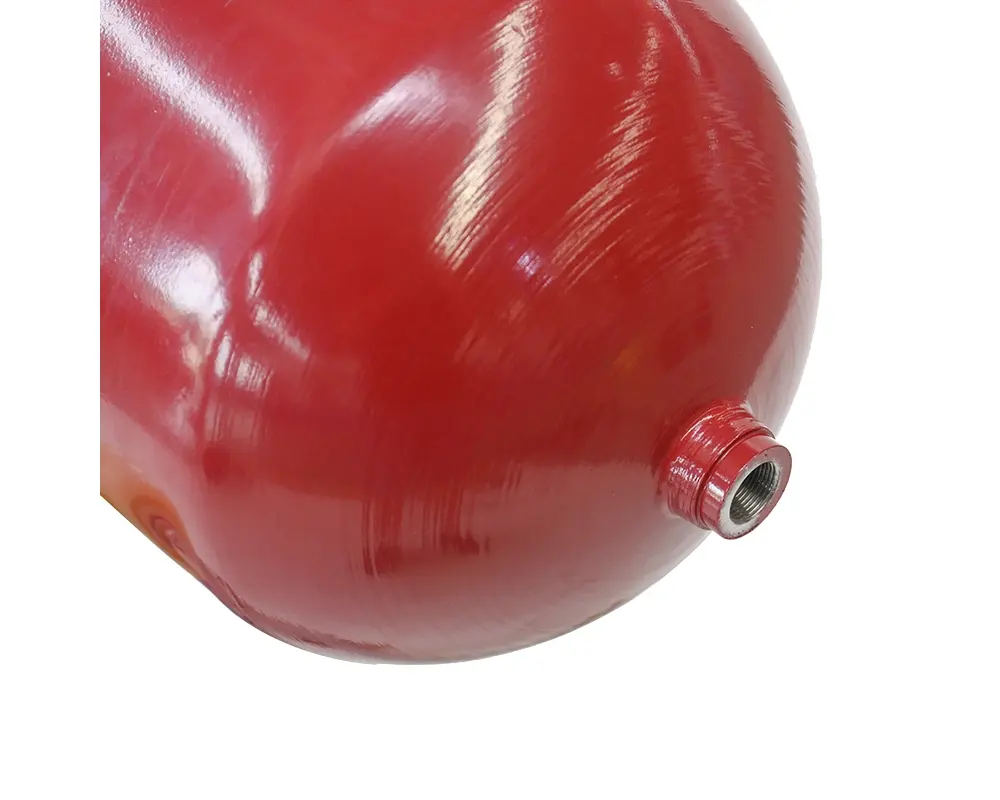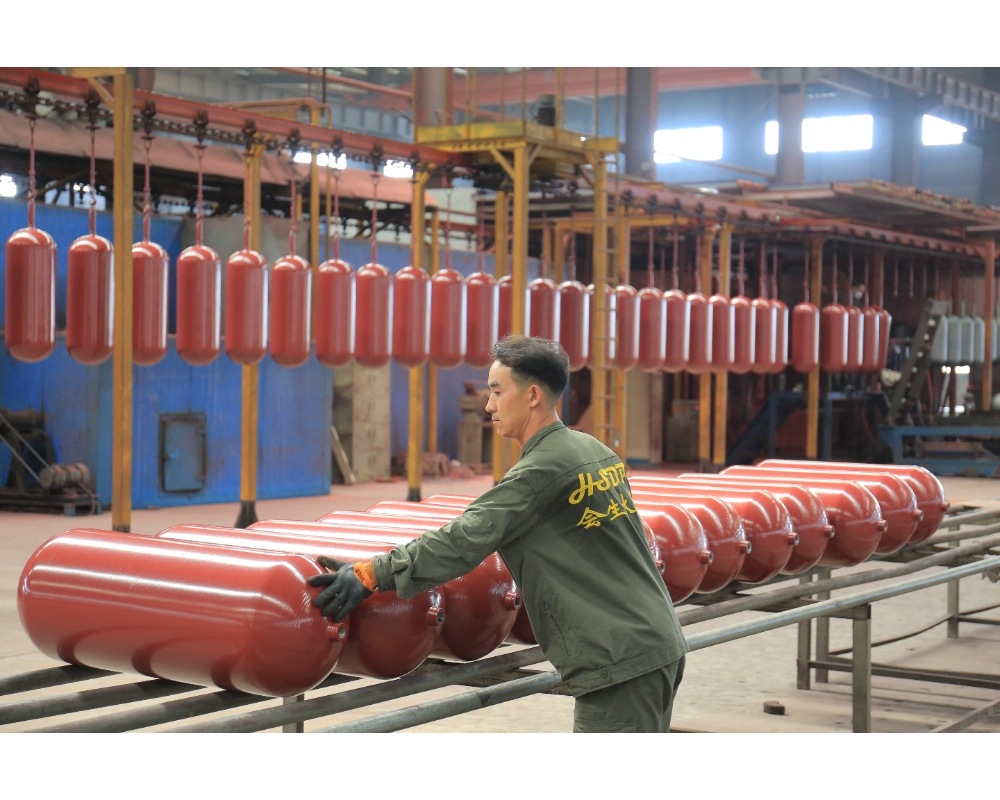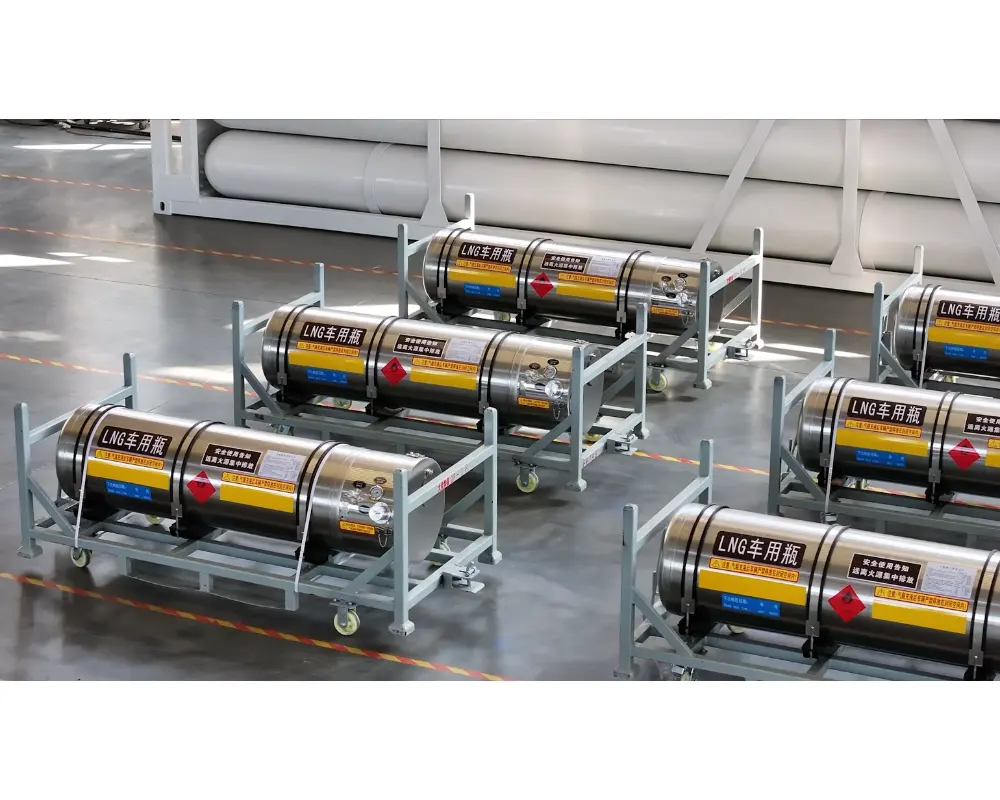Five Key Points to Consider When Choosing a CNG Cylinder for Vehicles
Release time: 2025-09-30
Compared to traditional fuels, CNG not only effectively reduces emissions but also offers a more economical fuel option. However, when choosing a CNG cylinder for vehicle use, you need to consider several key points to ensure you’re purchasing a product that’s both safe and meets your needs. This article will explain five key points to consider when choosing a CNG cylinder for vehicle use, helping you make an informed decision.

Cylinder Material and Quality
The safety and durability of CNG cylinders for vehicles are directly related to the cylinder’s material and manufacturing process. Common CNG cylinder materials on the market include steel, aluminum alloy, and composite materials (such as carbon fiber or fiberglass). Composite cylinders are the preferred choice for high-end vehicles due to their light weight, high pressure resistance, and excellent corrosion resistance.
- Steel cylinders: Relatively inexpensive, but heavier and with a shorter service life.
- Aluminum alloy cylinders: Moderately priced, with good corrosion resistance and a moderate weight.
- Composite cylinders: Higher in price, but offer optimal lightweight properties, high pressure resistance, and enhanced safety. When selecting a material, you need to choose the most appropriate one based on your vehicle’s load requirements, operating environment, and budget.
Cylinder Capacity and Pressure Rating
The capacity and pressure rating of a CNG cylinder directly impact your vehicle’s driving range and refueling frequency. The cylinder’s capacity determines how much gas your vehicle can store, while the cylinder’s pressure rating determines the storage method and safety performance.
- Capacity: Select the appropriate cylinder capacity based on the vehicle’s requirements. Generally, smaller vehicles can choose smaller cylinders, while heavy-duty or long-haul vehicles require larger cylinders.
- Pressure Rating: Common pressure ratings are 200 bar and 300 bar. Cylinders with a 300 bar pressure rating can hold more gas and are suitable for long-distance driving or vehicles requiring longer driving range.
Choose the appropriate cylinder capacity and pressure rating based on your vehicle’s needs to maximize driving efficiency and economy.
Safety Certifications and Compliance
CNG cylinders for vehicles are critical components that directly impact vehicle safety. Therefore, their production and sales must comply with strict international and national safety standards. Common certification standards include:
- ISO 11439: This is the international standard ISO 11439 for CNG cylinders for vehicles, ensuring their safety.
- ECE R110: The Economic Commission for Europe (ECE) certification standard for CNG cylinders.
- GB/T 27832: The Chinese national standard, which specifies the design, manufacturing, and testing requirements for CNG cylinders.
When purchasing CNG cylinders for vehicles, be sure to ensure they have the appropriate safety certifications to avoid using unverified, low-quality cylinders, thereby reducing safety hazards.
Cylinder Lifespan and Maintenance Requirements
CNG cylinders for vehicles have a certain service life, typically around 15 years. However, their actual service life is affected by the cylinder material, operating environment, and regular maintenance. Composite cylinders are generally more durable than steel cylinders, allowing for longer service life.
Regular maintenance and inspection are also crucial to extending the lifespan of cylinders. Regularly inspect the cylinders for visible scratches, dents, or corrosion, and ensure that the valves and connections are functioning properly. If necessary, have a professional perform a pressure test and a leak check.
Supplier Reputation and After-Sales Service
Choosing a reputable CNG cylinders for vehicles supplier is crucial. A high-quality supplier not only provides high-quality products that meet standards but also offers professional after-sales service. This includes cylinder installation, commissioning, testing, and regular maintenance.
When choosing a supplier, you can review their service history, customer reviews, and product certifications. Furthermore, choosing a supplier that offers comprehensive after-sales service ensures timely technical support and solutions should any issues arise.
Conclusion
Choosing a CNG cylinder for vehicle use is a decision that requires comprehensive consideration of multiple factors.
If you have any questions or require more information about CNG cylinders for vehicle use, please feel free to contact us. We will provide professional service and advice.


